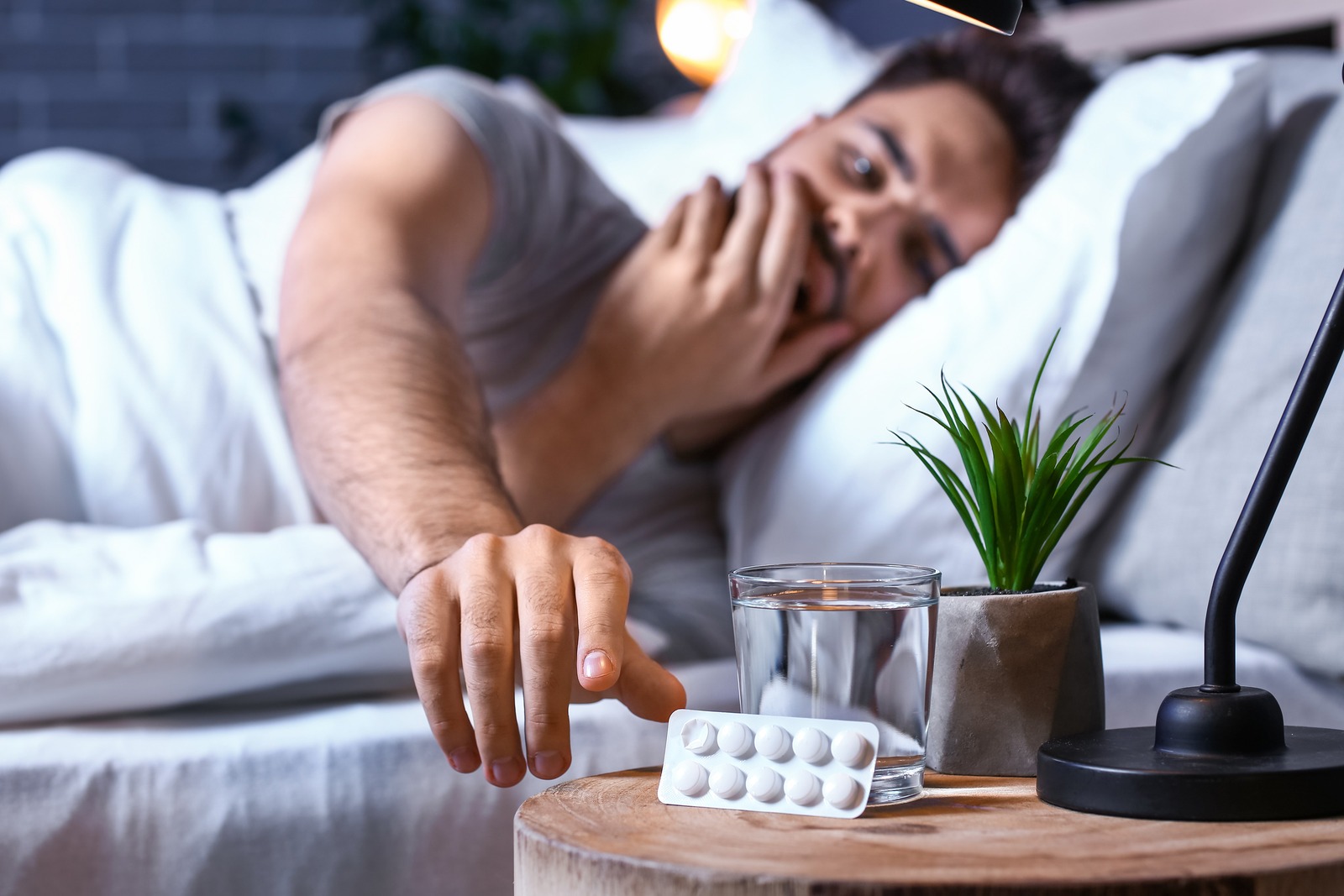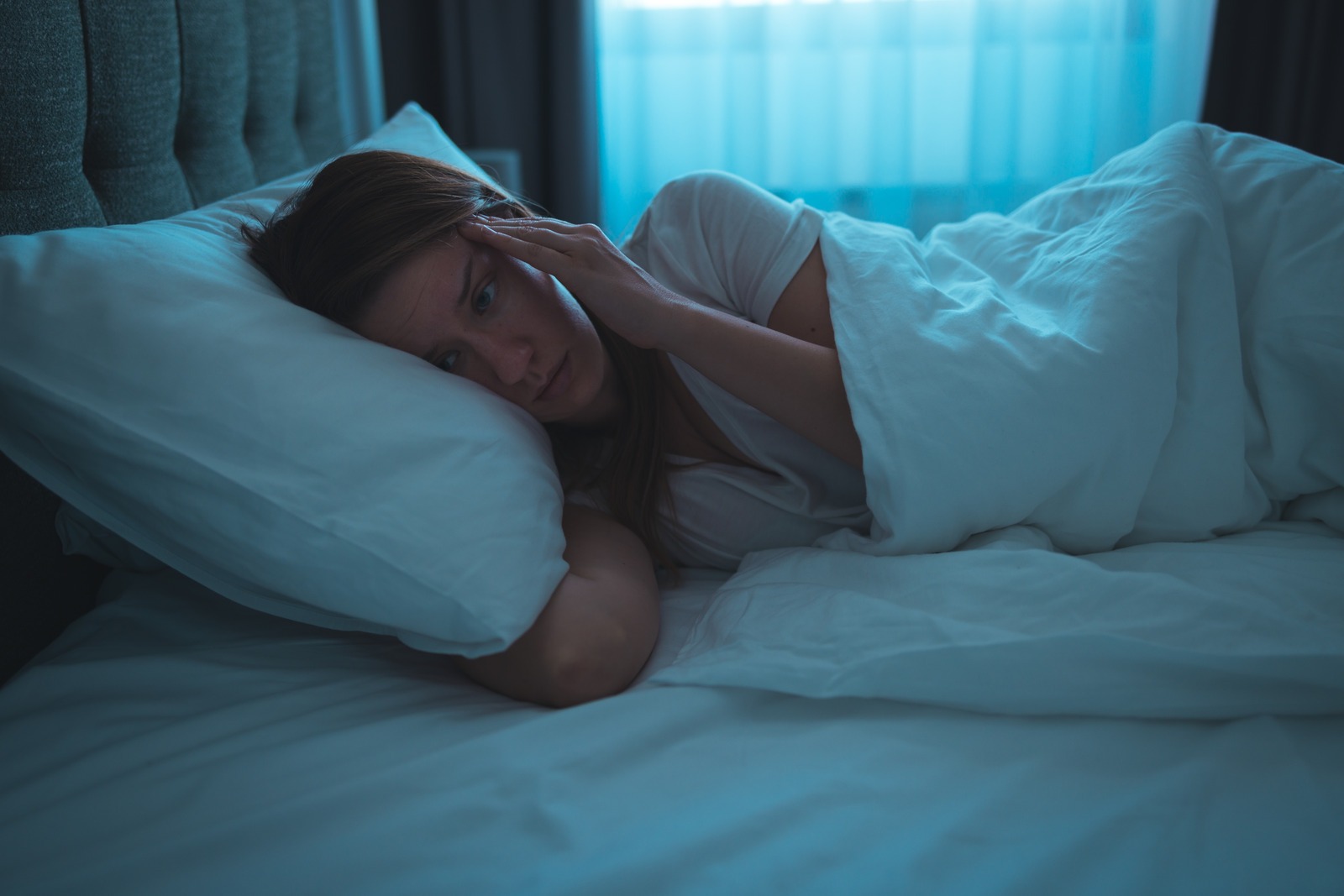Safety Guide: Which Sleeping Pill is Dangerous?

- Sleep issues are a common struggle, with roughly 30% of adults in the US experiencing symptoms of insomnia (and approximately 10% reporting insomnia severe enough to affect their daily functioning).
- While many prescription sleep aids can be effective in promoting sleep, some are considered more dangerous than others due to their potential for misuse, dependency, and adverse effects.
- The decision to use sleep medications should always be made in consultation with a healthcare provider, who can assess individual risk factors, discuss potential benefits and drawbacks, and prescribe the most appropriate treatment option based on your needs.
- Physical dependence, a common consequence, involves the body adapting to the drug’s presence, resulting in withdrawal symptoms upon cessation, such as insomnia, anxiety, and irritability.
- Taking higher doses than prescribed, using the medication for longer than recommended, or combining it with other substances can all contribute to misuse.
Sleep issues are a common struggle, with roughly 30% of adults in the US experiencing symptoms of insomnia (and approximately 10% reporting insomnia severe enough to affect their daily functioning).[1] As a result, many turn to sleeping pills for relief. However, it’s crucial to recognize the potential dangers associated with certain medications.
Some sleeping pills, while effective in the short term, can lead to dependency, adverse side effects, and even addiction. It’s essential to weigh the benefits against the risks and explore safer alternatives for managing sleep disorders.
Common Sleeping Pills and Their Uses
- Ambien: Ambien, also known by its generic name, zolpidem, is a widely prescribed medication used to treat insomnia.[2] It belongs to a class of drugs called non-benzodiazepine hypnotics, which work by enhancing the activity of gamma-aminobutyric acid (GABA) in the brain, resulting in sedative effects. Ambien is typically taken orally before bedtime and is recommended for short-term use to minimize the risks of dependency, tolerance, and adverse effects.
- Lunesta: Lunesta, or eszopiclone, is another prescription sleep medication commonly used to treat insomnia.[3] Like Ambien, Lunesta is classified as a non-benzodiazepine hypnotic and works by enhancing GABA activity in the brain. It is also taken orally and is generally prescribed for short-term use. Lunesta may help individuals fall asleep faster and stay asleep longer, but it carries similar risks of dependency and side effects as other sleep medications.
- Sonata: Sonata, or zaleplon, is a medication prescribed for the short-term treatment of insomnia.[4] Unlike Ambien and Lunesta, Sonata has a rapid onset of action and a shorter half-life, making it suitable for individuals who have difficulty falling asleep but do not struggle with staying asleep throughout the night. Sonata is typically taken immediately before bedtime and is generally recommended for short-term use, with the duration of treatment based on clinical response and the patient’s condition to mitigate the risks of dependency and tolerance.
- Other commonly prescribed sleep aids: Other commonly prescribed sleep aids include melatonin supplements, antihistamines like diphenhydramine (found in over-the-counter medications like Benadryl), and certain antidepressants such as trazodone. These medications may be recommended based on individual needs, medical history, and the severity of the sleep disturbance.
Which Sleeping Pills Are Considered Dangerous?
While many prescription sleep aids can be effective in promoting sleep, some are considered more dangerous than others due to their potential for misuse, dependency, and adverse effects.
Examining which medications can be dangerous requires a nuanced examination of various factors, including the drug’s pharmacological properties, side effect profile, potential for addiction, and overall safety profile.[5] Criteria for assessing the danger of sleep medications may include the drug’s classification, the frequency and severity of side effects, the risk of overdose or misuse, and the potential for long-term health consequences.
In general, sleep medications, especially those belonging to the benzodiazepine class and some non-benzodiazepine hypnotics, carry a higher risk of dependency and a range of adverse effects. However, the risk level can vary significantly among individuals based on several factors, including dosage, duration of use, and personal health history. These medications can include drugs like Ambien (zolpidem), Lunesta (eszopiclone), and Sonata (zaleplon) mentioned above.
However, it’s essential to recognize that the danger associated with sleep medications can vary depending on individual factors such as medical history, concurrent use of other medications, and your overall susceptibility to adverse effects. What may be considered dangerous for one person may not pose the same level of risk for another.
Ultimately, the decision to use sleep medications should always be made in consultation with a healthcare provider, who can assess individual risk factors, discuss potential benefits and drawbacks, and prescribe the most appropriate treatment option based on your needs.
Comparative Analysis of Sleeping Pills
Ambien
- Common side effects: Ambien is known for its effectiveness in treating insomnia. However, it can also be associated with common side effects such as drowsiness, dizziness, headache, and gastrointestinal disturbances. These side effects are typically mild and transient but can affect some individuals more severely.
- Potential for misuse and dependence: Like other prescription sleep medications, Ambien has the potential for misuse and dependence, particularly when used beyond the recommended duration or dosage.[6] Prolonged use of Ambien may lead to tolerance, meaning higher doses are needed to achieve the same effects, and dependence, where individuals may experience withdrawal symptoms upon discontinuation.
Lunesta
- Safety considerations: Lunesta can be effective in promoting sleep but also carries similar risks to other hypnotic medications, including the potential for dependency and adverse effects such as dizziness, headache, and next-day drowsiness.[7]
Sonata
- Rapid onset of action: Sonata is unique among prescription sleep medications due to its rapid onset of action and short duration of effect. While Sonata may be less likely to cause next-day drowsiness than other sleep aids, it still carries risks, such as dependency and adverse effects.[8]
- Potential dangers: Limited research exists on the long-term effects of Sonata, particularly in terms of its safety and potential dangers with prolonged use. As with other sleep medications, Sonata should be used cautiously and for short-term relief of insomnia symptoms to minimize the risk of dependency and adverse effects.
Emerging Concerns in Sleep Medications
As our understanding of sleep disorders and treatments continues to evolve, so does our awareness of potential concerns surrounding sleep medications.[9] The landscape of sleep aid safety is constantly evolving, prompting ongoing scrutiny and vigilance.
Addressing these emerging concerns entails a multifaceted approach. Researchers and healthcare professionals continue to search for new findings regarding the safety and efficacy of existing sleep medications. This includes monitoring for potential side effects, drug interactions, and long-term health implications.
Understanding Dependency and Addiction
Sleep medications can offer relief for individuals grappling with sleeping issues or disorders, yet they also carry the risk of dependency and addiction if not used appropriately.[10] Dependency can manifest as the body’s reliance on a substance to function normally, potentially leading to both tolerance—where higher doses of the medication are required to achieve
Physical dependence, a common consequence, involves the body adapting to the drug’s presence, resulting in withdrawal symptoms upon cessation, such as insomnia, anxiety, and irritability. However, it’s crucial to distinguish physical dependence from addiction, which encompasses a psychological craving for the drug and compulsive drug-seeking behavior despite negative repercussions. Notably, not all individuals who develop a dependence on sleep medications will exhibit addictive behaviors.
Misuse of sleep medications, such as taking higher doses than prescribed or using the medication for longer than recommended, can significantly exacerbate risks, including dependency, adverse effects, and the potential for overdose. Taking higher doses than prescribed, using the medication for longer than recommended, or combining it with other substances can all contribute to misuse.
Such misuse can significantly elevate the dangers associated with certain sleeping pills, including the potential for overdose, adverse side effects, and impaired cognitive function. Using sleep medications in ways not recommended by a healthcare provider, such as for extended periods or in higher doses, may lead to a worsening of sleep disorders and exacerbate symptoms, potentially leading to a cycle of increased dependence and reduced overall sleep quality.
Mitigating Risks and Safer Alternatives
Mitigating the risks associated with sleep medications involves adopting a responsible approach to their use. Adhere to prescribed dosages and usage instructions, avoiding any deviation or misuse. Additionally, it’s crucial to remain vigilant for signs of dependency or adverse effects and promptly consult a healthcare provider if any concerns arise.
In parallel, exploring lifestyle changes and non-pharmacological alternatives can offer safer solutions for managing sleep disorders. Healthy sleep hygiene practices, such as maintaining a consistent sleep schedule, creating a relaxing bedtime routine, and optimizing the sleep environment, can improve sleep quality without needing medication. Furthermore, incorporating stress-reduction techniques like mindfulness meditation, relaxation exercises, and cognitive-behavioral therapy for insomnia can address underlying factors contributing to sleep disturbances.[11]
Ultimately, seeking professional medical advice is paramount when considering sleep solutions. Healthcare providers can offer personalized guidance tailored to individual needs, including recommendations for safer alternatives to sleep medications and referrals to sleep specialists or behavioral therapists when necessary. By collaborating with healthcare professionals, individuals can make informed decisions to address their sleep concerns effectively while minimizing the risks associated with medication use.
Sleep Soundly, Sleep Safe
Understanding the potential dangers of sleep medications allows you to make informed choices regarding sleep management. By weighing the benefits against the risks and considering non-pharmacological alternatives, you can prioritize your safety while seeking relief from sleep disorders and issues.
Consulting healthcare professionals is always essential when considering medication choices. These experts can offer personalized advice tailored to individual needs, ensuring sleep management strategies align with health goals and overall well-being.
Frequently Asked Questions
Are you or a loved one struggling with Sleeping Pill addiction?
